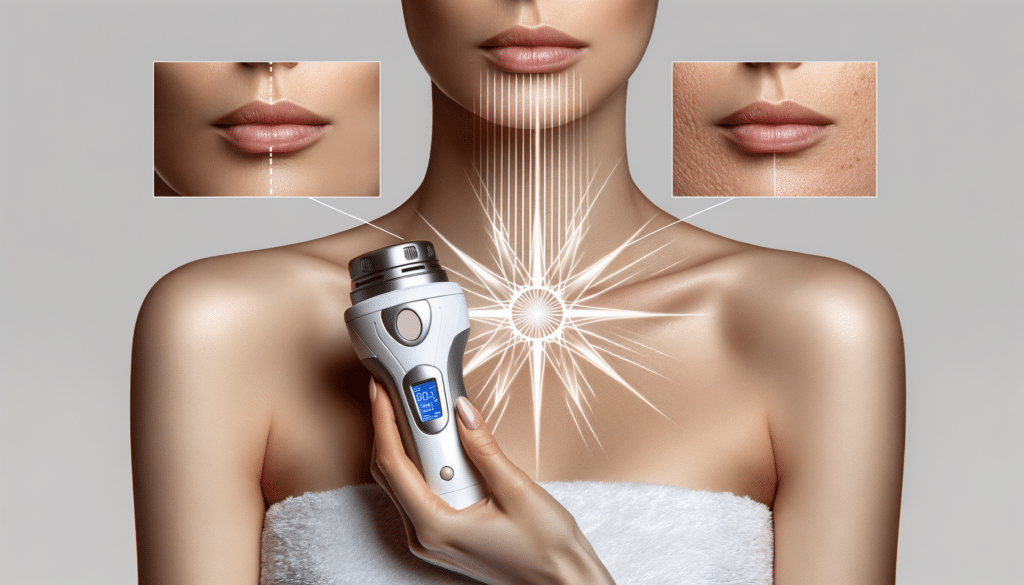Understanding Laser Skin Treatment
Laser skin treatment is a modern dermatological procedure that uses focused light technology to address a variety of skin issues. This treatment is known for its precision and effectiveness in targeting specific skin concerns, such as scars, wrinkles, and pigmentation. The principle behind laser treatment is the use of concentrated light beams that penetrate the skin layers to stimulate collagen production, reduce blemishes, and enhance skin texture. As a non-invasive or minimally invasive procedure, laser treatment is appealing to those looking for significant results with minimal downtime.
Laser skin treatments are categorized into ablative and non-ablative types. Ablative lasers remove the outer layers of the skin, making them suitable for treating deeper wrinkles and scars. Non-ablative lasers, on the other hand, work by heating the underlying skin tissue without removing the surface layer, which promotes collagen growth and skin tightening. The choice between these types depends on the individual’s skin condition and desired outcomes.
Key benefits of laser skin treatment include:
- Precision targeting of skin issues
- Stimulation of natural collagen production
- Improvement in skin tone and texture
- Minimal recovery time compared to surgical options
Types of Laser Skin Treatments
There are various laser skin treatments available, each designed to address specific skin problems. Some of the most popular types include:
Fractional Laser Resurfacing: This treatment involves the use of a laser to create thousands of tiny columns in the skin, known as microthermal zones. This process stimulates the body’s natural healing response, promoting the production of new collagen and skin cells. Fractional laser resurfacing is effective for reducing fine lines, wrinkles, and sun damage.
Nd:YAG Laser: Known for its ability to penetrate deeper into the skin, the Nd:YAG laser is often used for treating vascular lesions, hair removal, and skin rejuvenation. Its versatility makes it a popular choice for those with multiple skin concerns.
Pulsed-Dye Laser: This type of laser is particularly effective in treating redness and rosacea. It works by targeting blood vessels in the skin, reducing their appearance and improving skin tone.
When considering laser skin treatment, it is important to consult with a qualified dermatologist to determine the most suitable option based on individual skin type and concerns.
Benefits and Risks of Laser Skin Treatment
Laser skin treatment offers numerous benefits, making it a sought-after option for individuals looking to improve their skin’s appearance. Some of the primary advantages include:
- Reduction in the appearance of scars and blemishes
- Improved skin texture and tone
- Minimally invasive with quick recovery times
- Long-lasting results when combined with proper skincare
Despite its benefits, laser skin treatment also carries certain risks. Potential side effects can include redness, swelling, and temporary changes in skin pigmentation. In rare cases, scarring or infection may occur. It is crucial to follow post-treatment care instructions provided by healthcare professionals to minimize these risks.
To ensure the best outcome, individuals should choose a reputable clinic and experienced practitioner to perform the procedure. This helps in achieving desired results while minimizing potential complications.
Comparing Laser Skin Treatment with Other Skincare Options
When considering skincare treatments, it’s important to weigh the benefits and limitations of laser skin treatment against other available options. Traditional methods such as chemical peels and microdermabrasion are often compared to laser treatments.
Chemical Peels: This method involves applying a chemical solution to the skin to exfoliate and peel away the top layers. While effective for surface-level skin concerns, chemical peels may not offer the same precision and depth of treatment as lasers.
Microdermabrasion: This technique uses a mechanical device to exfoliate the skin, removing dead skin cells and promoting new cell growth. While it can improve skin texture, it may not be as effective for deeper skin issues compared to laser treatments.
One of the key advantages of laser skin treatment is its ability to target specific areas with precision, providing tailored solutions for individual skin concerns. This level of customization is often not achievable with other skincare methods.
The Future of Laser Skin Treatment
The field of laser skin treatment is continually evolving, with advancements in technology leading to more effective and safer procedures. Researchers and dermatologists are exploring new laser techniques and devices that can offer improved results with reduced side effects.
Innovations such as fractional laser technology and combination treatments are paving the way for more comprehensive skin rejuvenation solutions. These advancements aim to address a wider range of skin concerns with greater precision and minimal downtime.
As technology progresses, laser skin treatment is expected to become even more accessible and customized, offering individuals personalized skincare solutions that cater to their unique needs. With ongoing research and development, the future of laser skin treatment holds promising potential for enhancing skin health and beauty.





